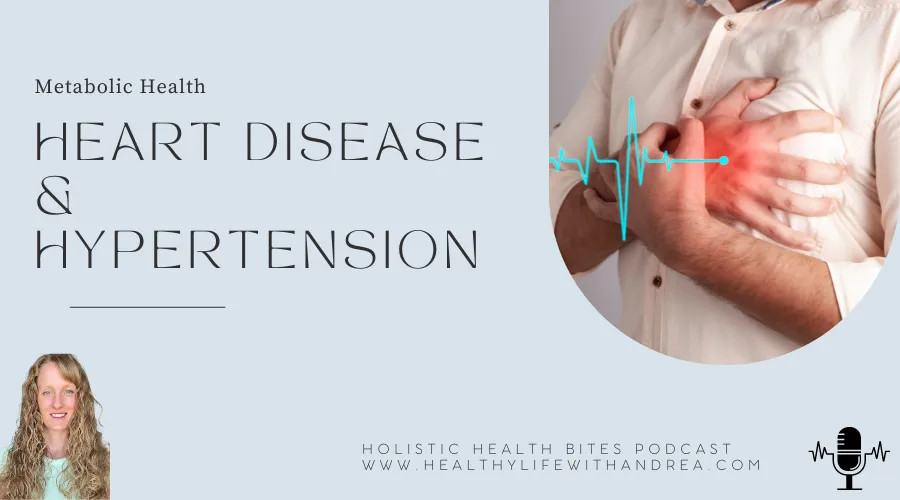
On this episode of the Holistic Health Bites Podcast, we are talking about the benefits to implementing a fasting lifestyle.
EPISODE NOTES:
1. Insulin Regulation: Blood insulin levels drop significantly during a fast because blood glucose remains low.
Most people today are used to eating multiple times per day which means they’re having many insulin spikes throughout the day. This happens at different levels each time we eat, whether it’s a small snack or a big meal. When our body takes a rest from digesting food, insulin has the ability to lower even more readily than when we eat, even when we’re controlling our carbohydrates.
2. Inflammation Reduction: Fasting reduces inflammation and oxidative stress.
Inflammation is a positive thing when it helps our body fight off infection. But when our lifestyle invites too much systemic, chronic inflammation, we’re prone to problems and disease. Fasting can improve the oxidative stress that comes from over consuming foods at a cellular level, in turn making us feel better and lowering our risk for certain chronic diseases.
3. Improved Heart Health: Fasting can improve heart health by lowering blood pressure and triglycerides.
Heart disease is the leading cause of death in the world. As you regularly fast your blood pressure will likely start to normalize. During fasting periods, your body will 1) break down triglycerides and turn them into free fatty acids which can then be used for energy, and 2) reduce the number of triglycerides in your blood.
4. Damaged Tissue Repair: Resting periods can allow our bodies to heal.
In the wild, when animals are injured, they’ll often find a water source to lay near and hydrate, but will not look for food until they heal. Fasting allows digestive organs to rest, freeing up energy for other processes that don’t normally take priority over digestion. Cell regeneration and repair are greatly enhanced while fasting.
5. Improved Brain Function: Many people report a clearer mind and memory improvement when fasting.
Have you ever noticed that feel sleepy or sluggish after a meal, when you’re far from a fasted state, right? Fasting not only improves our short-term brain function—clearing and sharpening our mind—but it can also improve the risk of long-term diseases such as Alzheimer’s and Parkinson’s.
6. Greater Appetite Control: Regular fasting makes you less hungry, not hungrier.
The way to lower Ghrelin (your hunger hormone) is not by eating, like you might suspect. It’s by fasting. It seems counterintuitive, but after you adapt to fasting and make it part of your routine, you will actually feel less hungry, not hungrier. As mentioned, fasting lowers insulin which also contributes to appetite regulation and it also helps to regulate leptin levels and restore leptin sensitivity. Leptin is your satiety hormone. It tells the brain that you have adequate fat stores and don’t need to continue consuming foods. Like insulin, you can become leptin resistant. When resistant, your brain doesn’t get the message that you are full, so you keep eating.
7. Cancer Prevention: Fasting may aid in cancer prevention and improved chemotherapy effectiveness.
Research is beginning to show that fasting may not only reduce the risk factors associated with cancer, but it can also slow its progression. And after recent promising studies, fasting may be a reasonable approach to improving the tolerability and efficacy of chemotherapy.
8. Higher Human Growth Hormone (HGH) Levels: This can lead to greater fat burning, muscle gain, and other benefits.
Our bodies produce something called Human Growth Hormone—which, for adults who are no longer growing, is beneficial in natural cell repair. Up to 80% of our HGH is released during our first sleep cycle, which lasts roughly 1.5 hours after we fall asleep. Fasting a few hours before bedtime lowers blood glucose levels which helps promote greater HGH release.
9. Immune System Improvements: Some consider fasting a catalyst.
Researchers say that fasting “flips a regenerative switch” causing stem cells to produce more white blood cells as our bodies “recycle” the old ones. This turnover causes our immune health to become more robust and efficient. Fasting can also improve your immune system regulation - keeping it active enough to keep you healthy, but not overactive leading to autoimmunity.
10. Autophagy: Fasting helps regenerate our bodies at a molecular level.
What’s happening with white bloods cells, as referred to above, is an example of autophagy. The word autophagy in Greek actually means “self-eating.” Autophagy is our body’s way of breaking down old, damaged, and worn out material and then building new, healthier replacements at a molecular level. Fasting may be one of the most effective ways to trigger this important process.
11. Antiaging: Fasting has a cumulative effect.
It’s clear that fasting initiates many different positive changes in our bodies. These improvements slow down aging by keeping our DNA and cells healthy. The benefits of fasting aren’t just momentary. Over the course of a lifetime, they have a cumulative effect on longevity.
Fasting has a ton of major benefits, but it must be done correctly to realize those benefits. There are various factors that must be considered: medications, supplements, length of fast, frequency of fasting, medical history, goals, food choices, etc.
If you are looking to implement a proper fasting regimen into your life, schedule a free call with me to discuss your personal situation.
If you are looking to implement a proper fasting regimen into your life, schedule a free call with me to discuss your personal situation.





















0 Comments